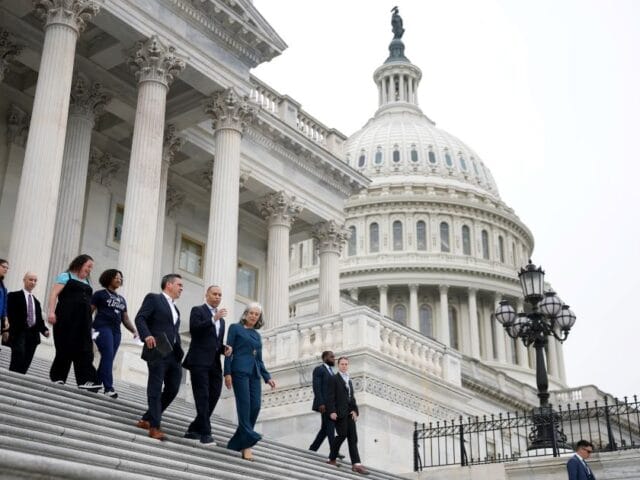On Sunday, eight Senate Democrats did something rare in Washington. They decided to put people over politics and voted to move forward with a deal to reopen the federal government. Their decision went against most of their party, including Minority Leader Chuck Schumer, who wanted a guaranteed extension for expiring health care subsidies before any deal. But these senators were done watching Americans suffer while politicians argued.
Fewer Democrats broke ranks this time than in March, when 10 went along with a GOP-led stopgap funding bill. That earlier move caused a political uproar. This time, there is no single reason why the eight voted the way they did. Most had a hand in negotiating the agreement with Republicans, while many of their colleagues preferred to wait.
Some of the senators have held state-level offices before, including 4 former governors. Several represent swing states, two are retiring after their current terms, and two are senior members of the Senate Appropriations Committee. None are facing reelection in 2026, which may explain why they felt free to make this bold move.
Senator Catherine Cortez Masto of Nevada has been consistent in her votes to end the shutdown. She could not stomach watching people go hungry while politicians bickered. She described food bank lines “like I haven’t seen since the pandemic” and said opening the government was key to stopping this pain. “We are not here to play politics,” she said, “we are here to help people eat.”
Senator Dick Durbin of Illinois, the Democratic whip, was the only leader to vote with Republicans. He admitted the deal was not perfect but said it would lessen the damage caused by the shutdown. He also reminded everyone that Democrats had secured a promise to vote on the ACA tax credits in December. Durbin plans to retire next year after three decades in the Senate, proving sometimes even veterans want a break from the circus.
Senator John Fetterman of Pennsylvania has been a steady voice for reopening the government. He criticized his party for creating the shutdown that left federal workers without paychecks and low-income families without food aid. “I’m tired of watching people suffer because of politics,” Fetterman said.
Senators Maggie Hassan and Jeanne Shaheen of New Hampshire both helped negotiate the deal. Hassan, a former governor, highlighted families struggling with health insurance costs. Shaheen, retiring next year, was one of the architects of the enhanced health care tax credits at the center of this fight. Shaheen said the deal was the only real chance to reopen the government and move forward.
Senator Tim Kaine of Virginia supported the agreement because it protected federal workers. The deal prevents unfair firings, reinstates employees terminated during the shutdown, and ensures they get back pay. Kaine admitted he joined the group late, joking that he did not want to miss the party but needed some convincing first.
Senator Angus King of Maine, an independent who works with Democrats, hosted multiple meetings to bring the compromise together. He said reopening the government is not a full solution but a necessary first step toward getting ACA tax credits to Americans who need them.
Senator Jacky Rosen of Nevada joined Cortez Masto in backing the deal. She criticized Republicans for ignoring working families and called the ACA tax credit vote a “small victory for common sense.”
By acting when others hesitated, these eight senators eased the suffering of hundreds of thousands of federal workers and millions of Americans who rely on government services. Paychecks were delayed, food aid was paused, and families faced uncertainty. Their vote brought relief and proved that sometimes politicians can do the right thing, even if it upsets party leaders.
The deal is not perfect, but it stops immediate pain and sets the stage for future negotiations on health care. It is a reminder that leadership can be more than words and that putting people before politics can work, even in Washington. These eight senators may have ruffled feathers, but they showed that progress, not point scoring, can still exist in the Capitol.
Featured image via Youtube screengrab





